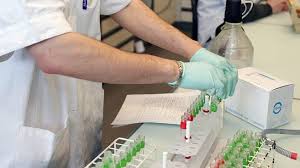FIFA announced on Tuesday that all doping control analyses for the 2014 World Cup in Brazil would be conducted by the anti-doping laboratory in Lausanne, Switzerland, as the laboratory in Rio de Janeiro had its accreditation revoked by the World Anti-Doping Agency (WADA).
The decision to use the Lausanne laboratory was made after discussions with WADA and Brazilian authorities. The laboratory in Rio de Janeiro lost its accreditation in August, and WADA’s president, John Fahey, mentioned that it would take time before it could regain accreditation, stating that it’s unlikely to happen before the FIFA World Cup next year.
While this move will increase the cost of the anti-doping program for FIFA, the organization has deemed it not impossible to manage. The logistical challenge involves shipping the samples overseas for analysis within a tight timeframe, with blood samples needing to be analyzed within 36 hours of collection to be valid. FIFA has committed to taking the necessary measures to address these challenges and ensure the integrity of the doping control process during the tournament.











